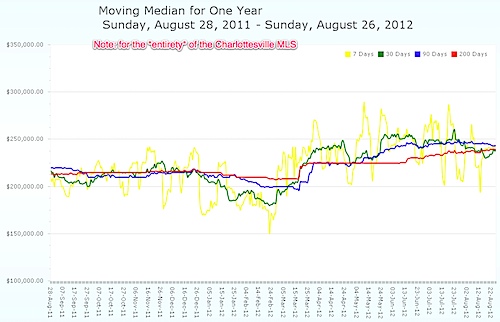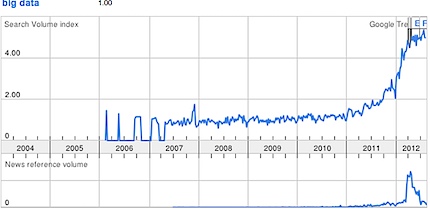
Looking at some real estate data the other day, I came to a conclusion: for some segments of the Charlottesville real estate market, we might actually be in the “bottom” – bottom meaning that prices are either not declining anymore or are in fact, wait for it … rising.
This belief was bolstered further when I looked at some of the numbers –
May, June, July – for the Charlottesville MSA, Year over Year:
– 777 homes (condo, single family, town home) sold this year versus 709 last year – an increase in volume of nearly 9%
– Median Price was up about 5% to $261,645
For the County of Albemarle:
– 418 homes sold versus 375 in this period last year; an increase of about 10%
– Median price was up nearly 12%
For the City of Charlottesville:
– 230 homes sold this year versus 146 last May, June, July; an increase of ~15%
– Median price in the City of Charlottesville rose nearly 8%.
BUT
There are still a lot of people in this market who cannot sell and not lose money – and I think this is going to remain the case for several years. Yes, the above news and data are very positive, and if you’re looking to buy and know you’re going to be here for several years, now could be a tremendous time to buy – you might lament your delay. But … every real estate market is local – down to the individual – and specific.



